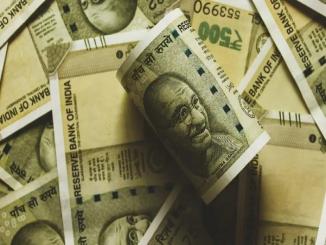
Rules to be followed while travelling to china
China, which is located in Asia is the most populous country in the world. It is governed by the communist party of china. China is one of the places in the world where people travel, it is either to travel to see several beautiful places like Forbidden City, the Great Wall of China and many other places or people tend to visit china for work reason. Depending the visit can be long and short.
Here our intend through booksofrule is to make the people who visit china make them aware of the rules and regulations in china while visiting. What are the necessary precautions needs to be taken in order to be safe in china.
China Critisism: Chinese people are just as proud of their country as visitors are of theirs, and probably more so. They can get a little irritated when customers favor them with criticisms of China. They know that things are not perfect, and they also know that they, like other countries, are working hard to deal with problems of environment and population and so on. Discussions regarding politics, state leaders, recent history, and issues about Taiwan, Xinjiang and Tibet are still seen as sensitive.
ï‚· Keep calm when dealing with government officials if tense situations arise. Raising your voice or getting angry will help with nothing but creating a losing-face situation for all.
ï‚· Never write things in red ink. It symbolizes protest or severe criticism.
ï‚· Punctuality is considered a virtue in China (though on average Chinese are 10 minutes late for engagements). Being on time shows respect for others. Chinese people show up a bit earlier to show their earnestness. Being on time for your tour or at any other time shows respect for the guide, and for fellow travelers
ï‚· Public displays of affection are frowned upon. Do not back slap, hug or put your arm around someone’s shoulder, which will make a Chinese feel uncomfortable, since they do not like to be touched by strangers. Of course you can do so if you are familiar with each other.
In temples:
Take off your hat, and don't point directly (if you want to indicate a statue and HAVE to use your hand, gesture palm up, fingers flat and together, in that direction).
Don't dip your fingers in the yak butter lamps in the temple, to taste the butter (apart from being highly offensive, it's also a health risk)
Avoid walking between a person praying to the Buddha and the statue.
Don't Touch People
The Chinese are less affectionately touchy feely, and hug and kiss much less than people from other cultures. When you meet a stranger, it might be best simply to greet verbally instead of trying to shake hands. This feels unnatural to most Chinese. When greeting, a slight nod is fine. Don't bow and never kiss or hug hello or goodbye, as personal contact is not that common.
In many areas of the country, due to tradition and religion, the head is considered more sacred. A touch could be considered disrespectful. So be aware of this, and don't pat people on the head or play with their hair unless you are sure of your standing with them.
However, you'll find that personal space in public (especially on public transport) is quite uncommon — Chinese in crowds may be more pushy and crush up against others for a place in line or a seat.
Both of these notions may go against your beliefs and what you are used to at home, where affection is much more readily displayed but personal space is more valued. Learning the nuances of behavior takes time.
Don't Tip
Tipping is a practice that is not observed in China. Cab drivers, restaurant staff, and bellmen do not expect to be tipped and could even be offended if offered extra money. If not offended, they will be confused and try to give your money back. Not tipping avoids these awkward situations, even though it may take some getting used to if you are coming from a society where tipping is important.
The sole exception to this practice is a tour that is catered for foreign visitors. The individuals on these tours often depend upon tips for their income. Therefore, it is wise to budget for tipping guides and drivers as one would in most other places in the world.
Don't ignore chopstick etiquette. Chinese have a lot of ideas about this. Chopsticks are for eating only. They are not to be used for gesturing to items or individuals. They are also not to be used as drumsticks or as playthings at someone's table.
Don't place chopsticks inside the bowl when finished or stick them in your hair. Instead, place the chopsticks on top of the bowl. Definitely don't stick your chopsticks straight up in your food. This is an ill omen representing death or a curse against them.
In Mosques:
- Cover your arms to the elbow, and your legs above the knees as a minimum.
- Keep gender separation: Don't shake hands with the opposite gender.
- Wearing a scarf over the head is required for women.
On the Silk Road:
The Silk Road includes the Muslim areas of China's northwwest:
- Don't bring non-halal items into a Muslim restaurant/home (our guide can help if you're unsure).
Avoid "sensitive" questions: Unless you have a good reason, don't talk about death, or mention that someone died. Death is quite a serious and ominous topic to Chinese. The color white represents death, so avoid giving white things as gifts or wrapping gifts in white paper or ribbons.
Don’t compare China to Japan, or political and religious issues. Chinese people are often not comfortable discussing history or political incidents that may cause embarrassment to China with foreigners, as they see their history from a different perspective. Avoiding sensitive topics like this will keep your conversation positive and friendly.
- e.g. relations between ethnic groups and the government.
- Alcohol and cigarettes are usually not permitted: ask first.
Do you need a visa to travel to China?
Americans or Canadians traveling to Mainland China, whether for business or pleasure, require a visa, which should be obtained in advance. You are exempt from this requirement if you travel and stay only in Hong Kong or Macao for less than 90 days. I will only transit in China for 24 hours.
How long does it take to get a visa to China?
If you have all the necessary documents and hold a passport with at least six months validity and two blank pages, it should take between two (if you apply for the express service) to four working days to get a Chinese VISA.
Do you need a passport to go to China?
If you do not have a valid passport and the appropriate Chinese visa, you will not be allowed to enter China, you will be fined, and you will be subject to immediate deportation. Effective November 12, 2014, U.S. citizens traveling to China may apply for a ten-year multiple-entry visa.



























